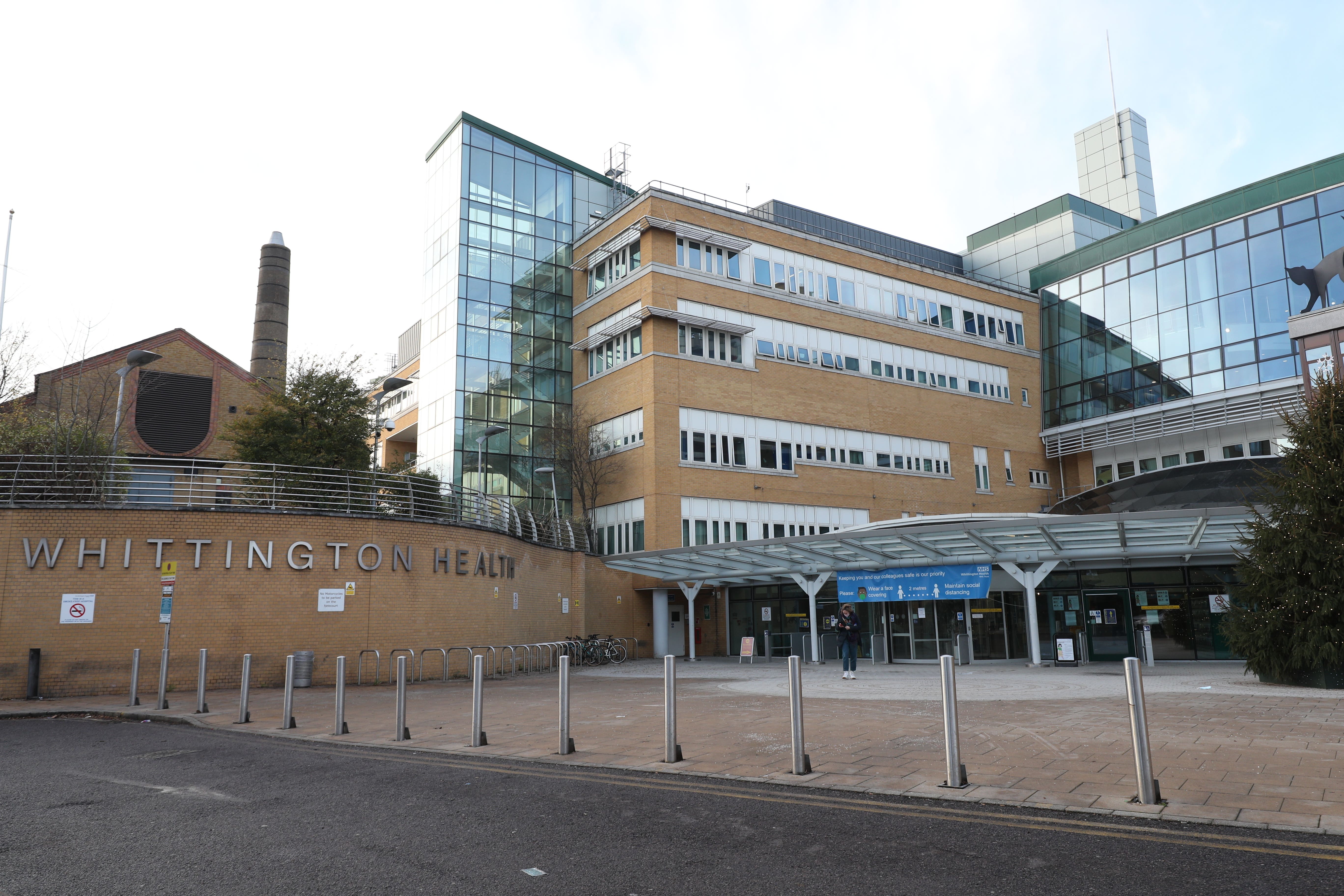Hospitals across England remain under extreme pressure from winter flu cases with one hospital advertising for nurses to take on “corridor shifts” in its A&E department to help manage the surge in patients.
Last week nearly 20 hospitals declared critical incidents – the NHS’s highest alert level – to help cope with an influx of emergency presentations from the spike in serious winter flu cases, with people being treated in corridors and a patient at one hospital forced to wait 50 hours to be admitted to a ward.
Some hospitals have restricted visitor numbers while others are encouraging people to wear surgical masks to limit the spread of viruses.
Whittington Hospital in Archway, north London, posted bank shifts available for A&E nurses which said “corridor care” in the notes.
Whittington Health NHS Trust said it is experiencing “very significant pressure” in its urgent and emergency care.

“In these circumstances, we may have to provide care in corridors, as an absolute last resort,” a trust spokesperson said.
“In common with other hospitals, where this is necessary we bring in additional staff on a temporary basis to ensure that care can be delivered as safely and compassionately as possible to patients.”
NHS England figures showed more than a third (35.4 per cent) of ambulance patients at Whittington Hospital waited more than 30 minutes to be handed to A&E teams last week.
Corridor nurses and care in corridors utterly normalised (this is an advert for a corridor nurse but sadly it’s nothing new). Don’t be fooled as critical incidents stood down: they’ll be back. Almost every hospital is treating patients in corridors and car parks. @RCollEM pic.twitter.com/VgEn6mpkVi
— Ian Higginson 🌈 (@RCEM_VP) January 11, 2025
Ian Higginson, a consultant in emergency medicine and the vice-president of the Royal College of Emergency Medicine, shared a screenshot of a “corridor RN” bank shift on X (Twitter).
Dr Higginson wrote: “Corridor nurses and care in corridors utterly normalised (this is an advert for a corridor nurse but sadly it’s nothing new).”
He warned that the pressure on hospitals will continue.
“Don’t be fooled as critical incidents stood down: they’ll be back,” he said.
“Almost every hospital is treating patients in corridors and car parks.”
Dr Adrian Boyle, president of the Royal College of Emergency Medicine, said corridor care is “degrading, dehumanising and dangerous”.
“Let me be clear, it is not possible to provide truly safe patient care in environments such as corridors and cupboards,” he said.
“So-called ‘corridor care’ occurs when emergency departments are overcrowded. This crowding leads to extended A&E stays that we know contribute to avoidable deaths – a concept the prime minister has said should be ‘always chilling’.”
Dr Boyle said the college has joined with the Royal College of Nursing and other medical organisations to ask health secretary Wes Streeting to compel NHS England to publish routine data about how often patients are being treated in such areas.
In recent days, hospitals in Northamptonshire, Cornwall, Liverpool, Hampshire, Birmingham, Plymouth and the Wirral declared critical incidents.
The NHS in Gloucestershire declared a critical incident and on Sunday its live A&E tracker on the Gloucestershire Hospitals NHS Foundation Trust’s website warned patients that the average time spent in the emergency department at Gloucestershire Royal Hospital is six hours.
By Monday, most trusts had stood down their declarations, including Northamptonshire and Liverpool.
Northamptonshire Integrated Care Board’s chief nursing officer Maria Laffan said the critical incident which covered Northampton General Hospital and Kettering General Hospital has been stood down, but said the area’s services remained under pressure.
“Our services, particularly our hospitals and ambulance service, remain extremely busy,” she said.
Dr Naomi Caldwell, deputy chief medical officer at NHS Northamptonshire ICB added: “We are still seeing high prevalence of flu, respiratory conditions and winter bugs in our communities, and we would continue to urge local people who are eligible but have not yet been vaccinated to continue coming forward for their flu, COVID-19 and RSV vaccinations.”
Dr Caldwell said in most cases flu and norovirus – another common winter bug – can be treated at home by “resting, drinking lots of fluids and taking paracetamol” but said people who were unsure or felt their symptoms were becoming worse should seek advice from their local pharmacy or use NHS 111.
“Please help us not to spread these viruses across the community by remaining at home, where possible, and not attending hospital if you have symptoms,” she said.
An NHS England spokesperson said: “The NHS is facing unprecedented demand for services but we remain clear that caring for patients in temporary spaces is not acceptable and should never be considered as standard.
“A&E capacity and patient flow through hospitals have however both been severely impacted by record levels of demand this winter, such as the increase in flu admissions and the thousands of beds being taken up by patients ready for discharge.
“NHS staff continue to provide the safest possible care for patients, including an expansion of same-day emergency care and more care in the community.”
Additional reporting from PA







